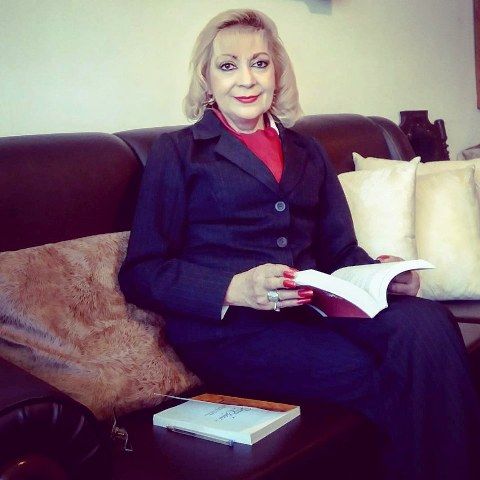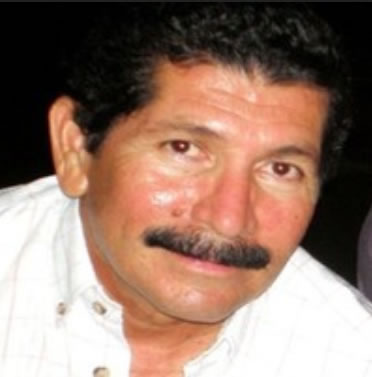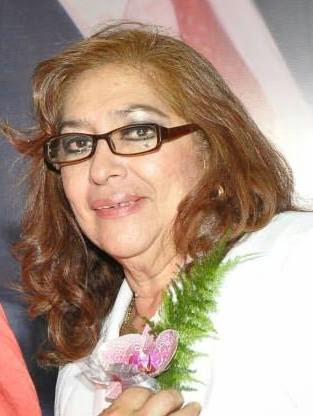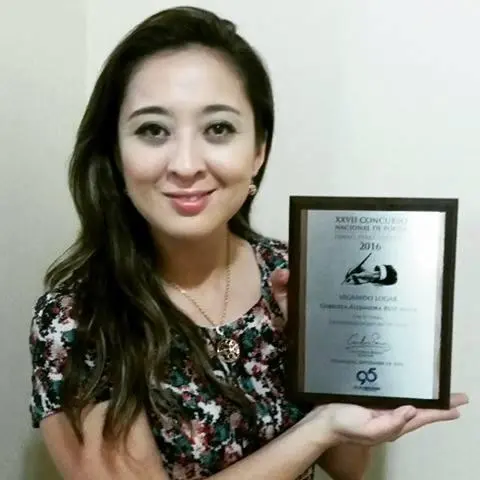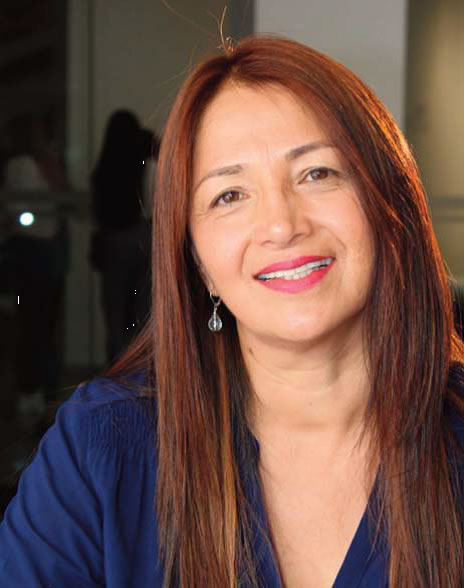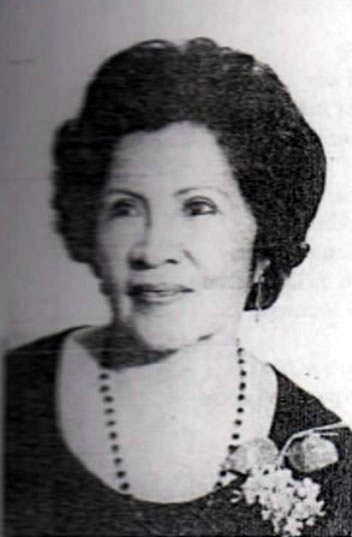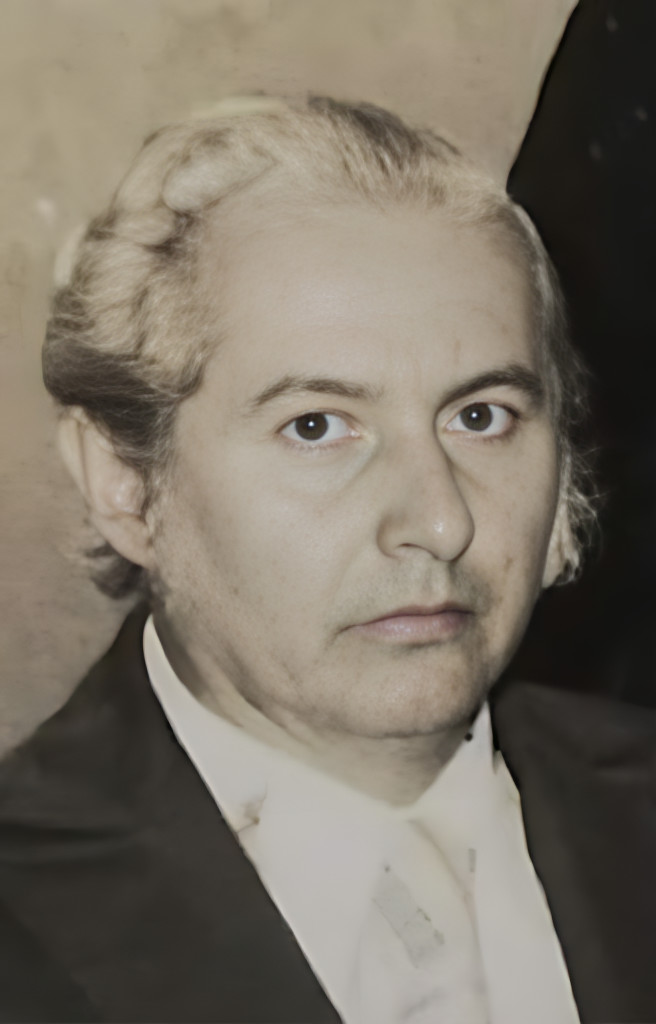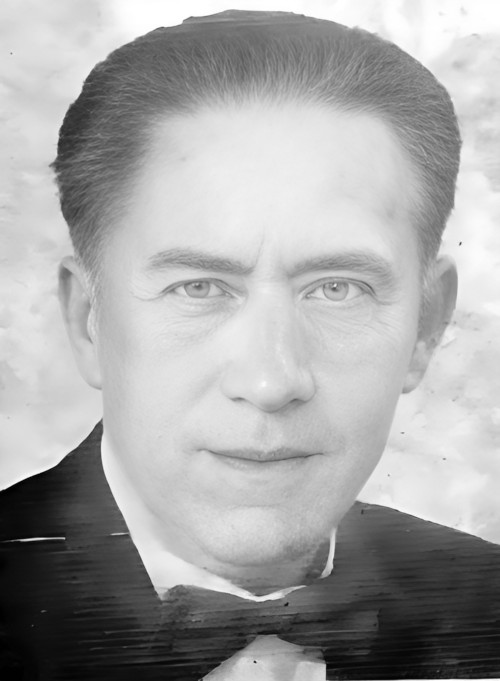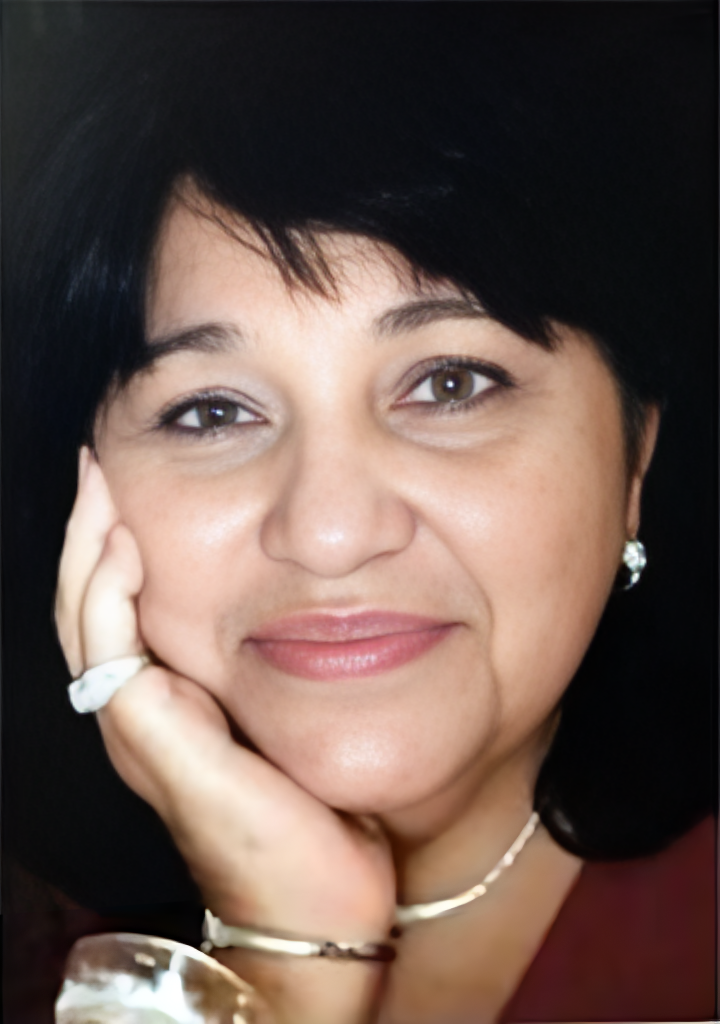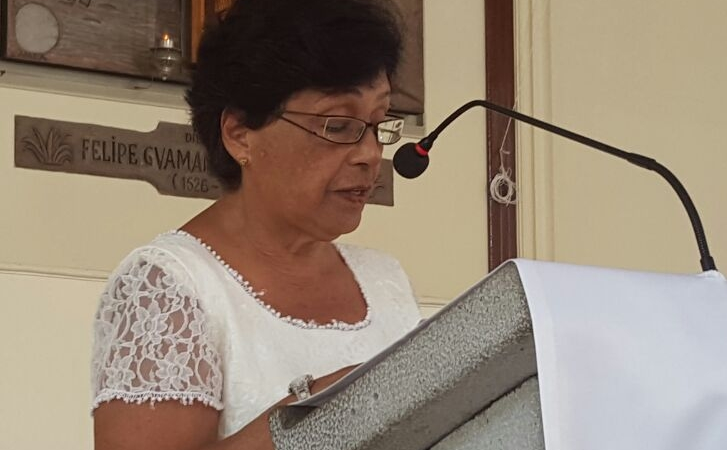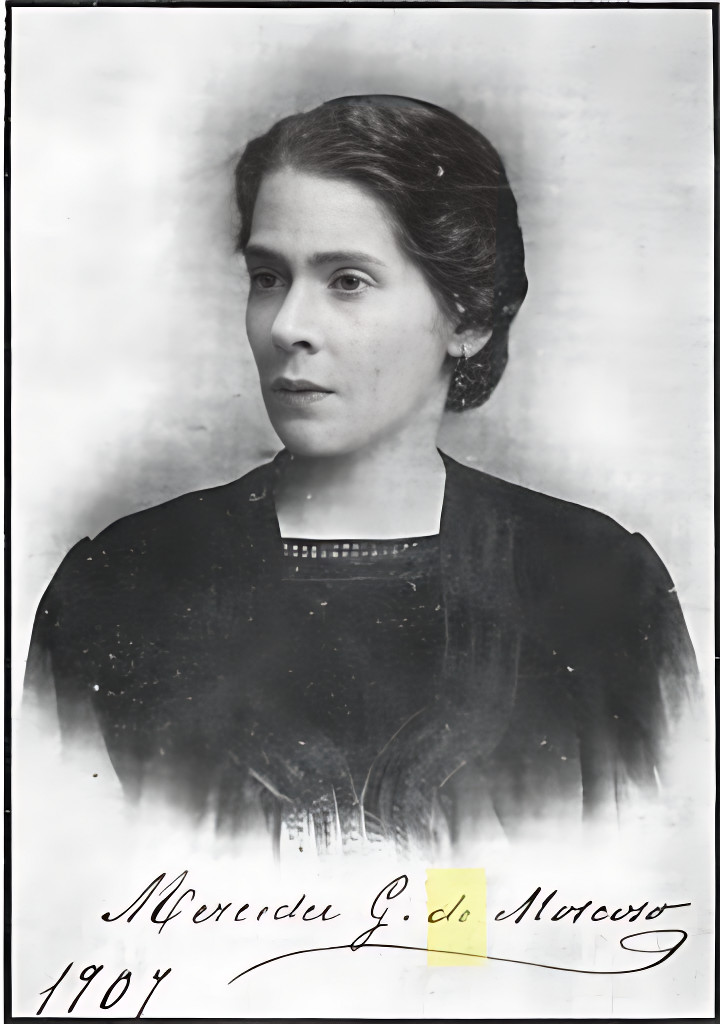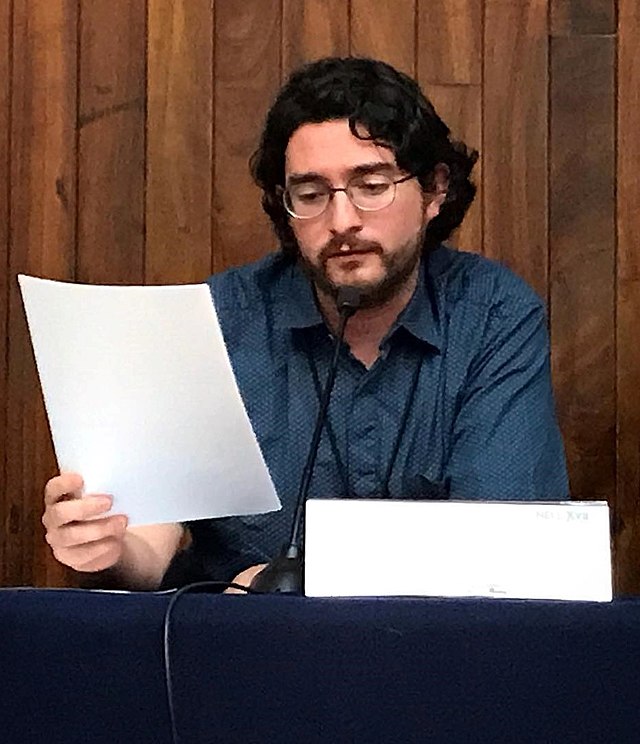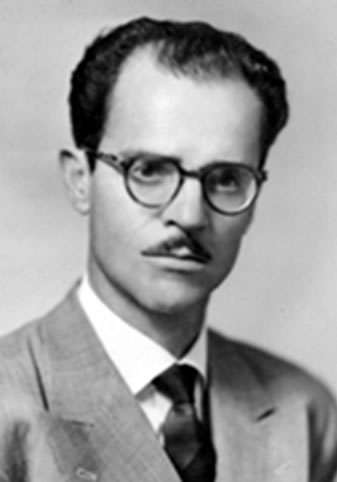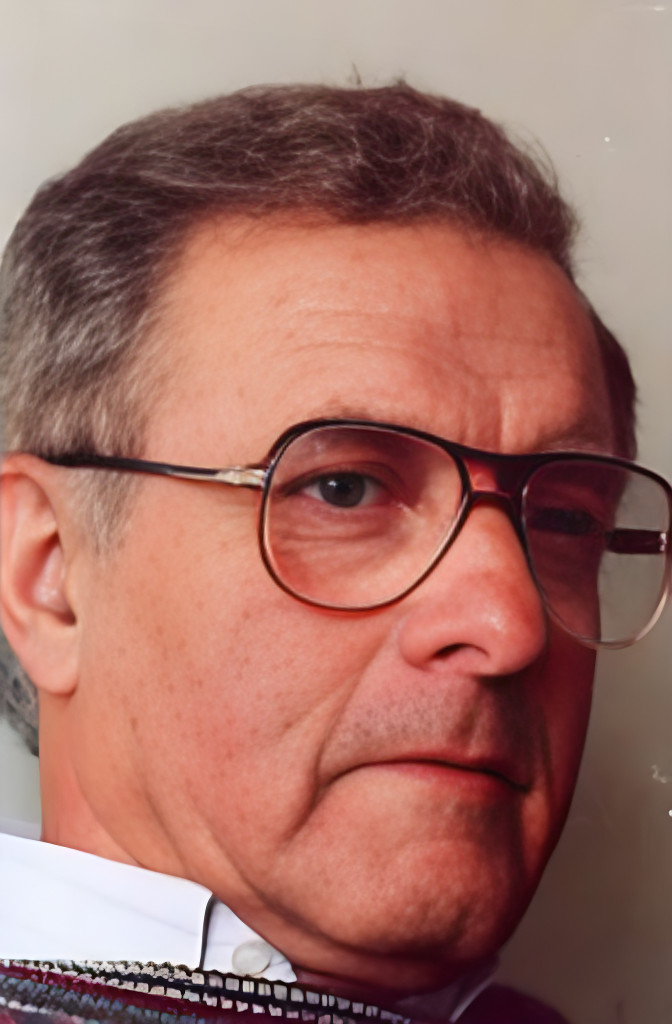Susana Costales Terán (Riobamba, March 24, 1960) is a writer and poet. She has twice served as president of the Association of Contemporary Women Writers of Ecuador, Matriz Chimborazo. She is also a member of the House of Ecuadorian Culture in Chimborazo, President of the musical group Rondalla de Riobamba, President of the Los Superstar Club, and President of the Club Antifaz. Her father was the renowned writer Luis Alberto Costales. She is currently a language and literature teacher at Unidad Educativa Jefferson, a school in the Riobamba canton. She also directs a cultural radio program, gives free public speaking classes, and conducts literary workshops and conferences. She owns and operates Café Libro El Zaguán, a cafe which aims to serve as a cultural meeting spot for poetry, art and music; it holds poetry recitals at the end of each month.
Continue reading “Susana Costales Terán”Category: Poets
Horacio Mendoza Parraga
Horacio Mendoza Parraga (Portoviejo, 1947) is an Ecuadorian poet, writer, and university professor. He is the author of several poetry collections. He is known as a lyrical, social and romantic poet, and his poems have also been included in various anthologies. In 1971, he won first prize in a national poetry contest organized by the House of Ecuadorian Culture. In 1968, 1972, and 1973, he received honorable mentions in the Ismael Pérez Pazmiño National Poetry Contest. He has served as Councilor of the Portoviejo canton; Director of the Municipal Board of Culture of Portoviejo; President and Executive Director of the Manabí Rehabilitation Center; and has been the President or Director of several private companies. He is currently the Director of Culture at the Universidad Particular San Gregorio in Portoviejo.
Continue reading “Horacio Mendoza Parraga”Ximena Mendoza Párraga
Ximena Mendoza Párraga de Granda (Portoviejo, January 31, 1951) is an Ecuadorian poet. She’s a member of the Manabi chapter of the House of Ecuadorian Culture, President of the Writers Association of Manabi, and the first Provincial Culture Director of Manabi, named to this position by the Ministry of Culture. Her poems have appeared in various anthologies. She was married to the poet Euler Granda.
Continue reading “Ximena Mendoza Párraga”Gabriela Ruiz Agila
Gabriela Ruiz Agila (Quito, Ecuador, 1983) is an Ecuadorian journalist, poet, and researcher of mixed Chinese and Ecuadorian heritage, specializing in migration, human rights, and environmental issues. Her heritage is reflected in her work, particularly in Madame Ho. Escrituras de viaje (2017), where she explores themes of identity and migration, drawing from her personal background. She holds degrees in Communication from the Central University of Ecuador and Public Administration from the Autonomous University of Baja California (UABC), where she also earned a master’s in Public Policy. Ruiz Agila is recognized for her contributions to independent journalism and has received multiple awards, including the National Eugenio Espejo Journalism Award in 2017.
Continue reading “Gabriela Ruiz Agila”Damia Mendoza Zambrano
Damia Mendoza Zambrano (Manta, 1966) is an Ecuadorian poet, singer-songwriter, researcher, and university professor. As a poet, she’s represented Ecuador at international festivals in Taiwan, Mexico, Peru, Spain, Cuba, Canada, Argentina, Morroco, and the United States, among others. Her poetry books include, Sueños de Gaviota (1986), El despertar de Gaviota (2001), Desliz (2002), Tras los Cristales de mi Mar (2007), and Hojas de mi noche larga (2012). Her poems have also been published in several anthologies. Some of her poems have been translated into Italian, English and French.
Continue reading “Damia Mendoza Zambrano”Josefa Mendoza de Mora
Josefa Mendoza de Mora (Montecristi, March 18, 1917 – Guayaquil, January 26, 2006) was an Ecuadorian poet. She was part of the editorial staff of the magazine Recado Cultural of Portoviejo and was a member of the Manabi chapter of the House of Ecuadorian Culture. She also helped found the Manta Cultural Group in 1965 and served as its president. Some of her poems have been set to music by notable Ecuadorian composers, including Gerardo Arias and Constantino Mendoza. A high school in Manta bears her name.
Continue reading “Josefa Mendoza de Mora”José Viliulfo Cedeño Sánchez
Dr. José Viliulfo Cedeño Sánchez (Manta, January 21, 1928 – Manta, February 27, 1986) was an Ecuadorian writer, poet, historian, archaeologist, and university professor. He was a founder and secretary of the Manta Cultural Group, he wrote various textbooks on philosophy, Ecuadorian territorial rights, literature and ethics. His poems were published in, “Itinerario del hombre” and “Voces Manabitas.” In 1985, his most notable book was published, “La Confederación Manteña,” a historical study of Manta’s roots. Two schools in the Manabi province bear his name.
Continue reading “José Viliulfo Cedeño Sánchez”Jorge Cevallos Calero
Jorge Cevallos Calero (Portoviejo, December 2, 1898 – August 20, 1968) was an Ecuadorian poet. In the 1920’s he formed part of the ”Argos” generation, an important literary group from Portoviejo. In 1950, he became a member of the Ecuadorian House of Culture in Manabi. In 1965, he created and presided over the Grupo Cultural Manta [Manta Cultural Group], which was very active in those years. He was bestowed the Flor Natural for his “Canto a Portoviejo” [Song to Portoviejo]. The poet Horacio Hidrovo Peñaherrera, being Mayor of Portoviejo, erected a bust in Cevallos’ memory, recognizing him as a universal poet “always attentive to the great events of humanity.” Today a school in Manta bears his name, as well as a park and garden in Portoviejo.
Continue reading “Jorge Cevallos Calero”Lesther Macías Vera
Lesther Macías Vera de Carofilis (Portoviejo, August 12, 1951) is an Ecuadorian poet. She is currently the director of the academic literature section of the House of Ecuadorian Culture in Manabi. She is the recipient of various teaching awards (1979, 1981, 1990, 1995). For her active participation in the Ecuadorian Literature seminar in 1983, the Ministry of Education and Culture awarded her a Diploma of Honor. She won second place in a prestigious poetry contest in Quito in 1990, with her poems “Un Árbol que murió de tristeza” and “Fábricas de Asfalto”. She is a member of “The Cove/Rincón International”of Miami, FL, a cultural group for poetry and other arts.
Continue reading “Lesther Macías Vera”Aracely Cevallos
Aracely Cevallos Ramírez de Velasco is an Ecuadorian poet who has been dubbed “la jardinera de la palabra” [The Word Gardener]. She is regarded as one of the most representative poetic voices of Manabi literature, distinguished by her modernist style and her ability to capture beautiful metaphors about nature, which she understands as an agricultural engineer and co-founding member of the Portoviejo Gardening Club. She is a member of the Manabi chapter of the House of Ecuadorian Culture.
Continue reading “Aracely Cevallos “Mercedes G. de Moscoso
Mercedes González de Moscoso (Guayaquil, October 12, 1860 – Quito, November 23, 1911) was a prominent Ecuadorian poet and playwright, considered the leading figure of the country’s second Romantic movement. Her poetry focused on themes of family, motherhood, and domestic life, often expressing a deep melancholic tone shaped by personal loss. Among her most notable works are Reminiscencias (1890), En el Nido (1899), and Cantos del hogar (1909). She also wrote plays, including Martirio sin culpa and an adaptation of her poem Abuela into a three-act play, both produced in 1907. Her work made her an important voice in Ecuadorian literature and feminist circles.
Continue reading “Mercedes G. de Moscoso”Juan Romero Vinueza
Juan Romero Vinueza (Quito, 1994) is an Ecuadorian poet and editor. He has published the following poetry books: “Revólver Escorpión” (2016), “39 poemas de mierda para mi primera esposa” (2018), and “Dämmerung [o cómo reinventar a los ídolos]” (2019), which was given Honorable Mention in the 2019 Jorge Carrera Andrade National Poetry Award. He co-edited the anthology “Despertar de la hydra: antología del nuevo cuento ecuatoriano” (2017) with Abril Altamiro, which won the Ecuadorian Ministry of Culture and Heritage’s 2016-2017 Competitive Funds incentive. He and Kimrey Anna Batts edited and translated “País Cassava / Casabe Lands” (2017), a binational anthology of stories from Ecuador and Nigeria. In 2021, a collection of his poetry was published in an anthology titled “Ínfimo territorio kamikaze.”
Cristina Reyes
Cristina Reyes, born Cristina Eugenia Reyes Hidalgo (Guayaquil, August 26, 1981) is an Ecuadorian lawyer, legislator, politician, former beauty contestant, and poet. Since 2000, Reyes has published 4 poetry collections. She was the first runner-up in the Miss Ecuador 2004 pageant, and she also competed in Miss World 2004 in Sanya, China, and Miss Earth 2005 in Quezon City, Philippines. She has worked as a show host for TC Televisión, Telesistema (now RTS), Telerama, and Ecuavisa. Her first television appearance as a reporter was on the show Ventana a la Calle, which was hosted by Kenneth Carrera, who was later replaced by Reyes after he became involved in politics. She served in Ecuador’s Constituent Assembly as a member of the Social Christian Party from 2007 to 2008, and has also served as an assemblywoman in Ecuador’s National Assembly. She is currently an Andean Parliamentarian of Ecuador and Vice President of the Education Commission.
Continue reading “Cristina Reyes”Rodrigo Pachano Lalama
Rodrigo Pachano Lalama (Ambato, August 7, 1910 – June 20, 1984) was an Ecuadorian lawyer, writer, poet, journalist, historian, researcher, and teacher. He was elected mayor of Ambato in 1955 for a period of 2 years. He authored Tungurahua’s Hymn, several poetry books, and essays, including one about Juan Montalvo. Throughout his life, he received numerous decorations and distinctions. In one of his books, the Spanish writer and Nobel Prize winner Camilo José Cela recalls meeting the “poet Rodrigo Pachano” during a visit to Ambato in 1954. He founded the Tungurahua chapter of the House of Ecuadorian Culture with other Ambato intellectuals such as Edmundo Martínez, Jorge Isaac Robayo, Rodrigo Vela, Blanca Martínez de Tinajero, and Gerardo Nicola. He was the organization’s president for several years.
Continue reading “Rodrigo Pachano Lalama”Mario Cobo Barona
Mario Cobo Barona (Ambato, September 10, 1930 – Ambato, April 16, 2007) was an Ecuadorian poet, playwright, essayist, and educator. He wrote over 30 books in different genres. The Ecuadorian House of Culture published an anthology containing the majority of his poetic works. He held various posts in Ecuador in the field of education, such as Vice Minister of Public Education, Provincial Director of Education of Tungurahua, and Rector of the Rumiñahui National School, to name a few. He received several accolades and recognitions for his work as an educator. On July 31, 1997, he became a corresponding member of the House of Ecuadorian Culture. On January 17, 2002, he was honored with full membership into the academy.
Continue reading “Mario Cobo Barona”
